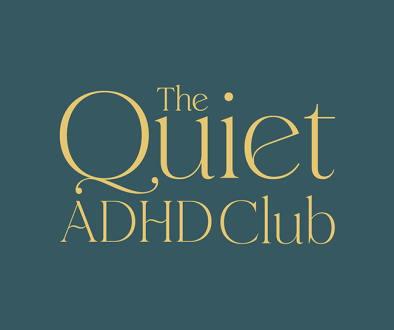To get a neurodiversity diagnosis or not: a guide for couples

To get a neurodiversity diagnosis or not: a guide for couples
Awareness of neurodiversity is higher than ever before, thanks to public education on the topic. This has enlightened many people struggling with everyday dynamics, such as workplace culture and navigating interpersonal relationships.
The COVID-19 lockdown in the UK presented a unique challenge for assessments of Autism Spectrum (AS) and Attention Deficit Hyperactivity Disorder (ADHD). While traditional in-person evaluations faced delays and disruptions due to social distancing, a fascinating trend emerged — a rise in overall assessments.
There’s no definitive answer yet, but experts suggest multiple factors. Increased public awareness of neurodiversity during the pandemic, coupled with more time spent indoors leading to a clearer picture of symptoms for some individuals, could be contributing reasons.
Before the pandemic, I often recommended evaluations for neurodiversity (ND) in couples based on the dynamics I observed. However, nowadays, many clients come to therapy already diagnosed.
Will neurodiversity diagnosis help my relationship?
While a diagnosis can be helpful, it’s important to consider several factors:
- Choose the right person to make the diagnosis. Seek a qualified professional who can diagnose and prescribe medication (if needed) for ADHD, autism, or both (as these conditions can occur together).
- Understand the costs. Be prepared for potential costs associated with the assessment, medication titration (finding the right dosage), and ongoing medication management. Talk to the specialist about their fees upfront.
- Clarify the Shared Care Agreement. Confirm if your GP will be willing to monitor your medication after the dosage is established.
The admin in order to get a diagnosis can be a challenge. It might be beneficial to ask your support network for help to complete this part of the process. You may also need anecdotes from family or long-term friends to supplement the clinician’s understanding of your character.
Impact on couples
A diagnosis can significantly impact your relationship. Often, one partner might have pushed for it, hoping for immediate improvement. However, this isn’t always the case. The diagnosed partner’s behaviours, emotional state, and overall dynamic can shift, potentially leading to a challenging period. This is called unmasking.
Unmasking refers to the diagnosed partner no longer feeling the need to suppress their neurodivergent traits to fit in with societal expectations. This can be a positive step towards authenticity, but it can also be disruptive to the established dynamic within the relationship. Partners who were used to a certain level of masking might feel confused or frustrated by the changes. Open communication, empathy, therapy and coaching can help couples navigate this period of adjustment. This builds a stronger foundation for your relationship based on mutual understanding.
Keys to successful navigation
The shift in dynamics during and after diagnosis can be challenging for couples. In addition to unmasking, it’s important to note that neurodivergent people process new information differently from neurotypical people. The right professional support can help you understand exactly how each individual processes information. You can also follow these tips to help you through the process:
- Allow time for adjustment. Give yourselves time (up to two years) to absorb the new information. Consider therapy or coaching to support this process.
- Hold off on major decisions. Avoid big life changes like moving or having children during this adjustment period. This allows space for potential realignment as a couple.
- Reframing the past: The diagnosed partner may re-evaluate their life and past experiences through the lens of ND. This can lead to a shift in understanding, e.g. a seemingly cold parent might now be seen as neurodivergent rather than simply unemotional.
- Processing resentment. Past disagreements might be reinterpreted through the ND lens, but addressing built-up resentment takes time and effort.
Processing resentment
Imagine a backpack filled with stones. The stones represent resentment which has been collected over time.
Diagnosis creates a tear in the backpack.
But the stones do not fall out right away.
It takes trust and time for the stones to fall out of the backpack.
With time and effort from both parties, the resentment will lessen.
The backpack will feel lighter.
The path to growth
Therapy and coaching can equip you as a couple to modify negative behaviours, adapt to the situation, and ultimately develop compassion and acceptance for each other. This allows you to rebuild your relationship on a foundation of understanding, leading to growth and a stronger bond.
A diagnosis can be a valuable tool for understanding yourself and your relationship, but it’s just the first step. Be prepared for challenges, give yourselves time to adjust, and seek professional support to navigate this process together.
How can I help?
I am a fully qualified Relationship Coach & Psychosexual Therapist, with over 20 years of experience. I work with couples where AS or ADHD is present.
I offer a blend of therapy and coaching, creating a bespoke package for each couple I work with.
For more information about how we can work together to support your couple through diagnosis, please get in touch.



